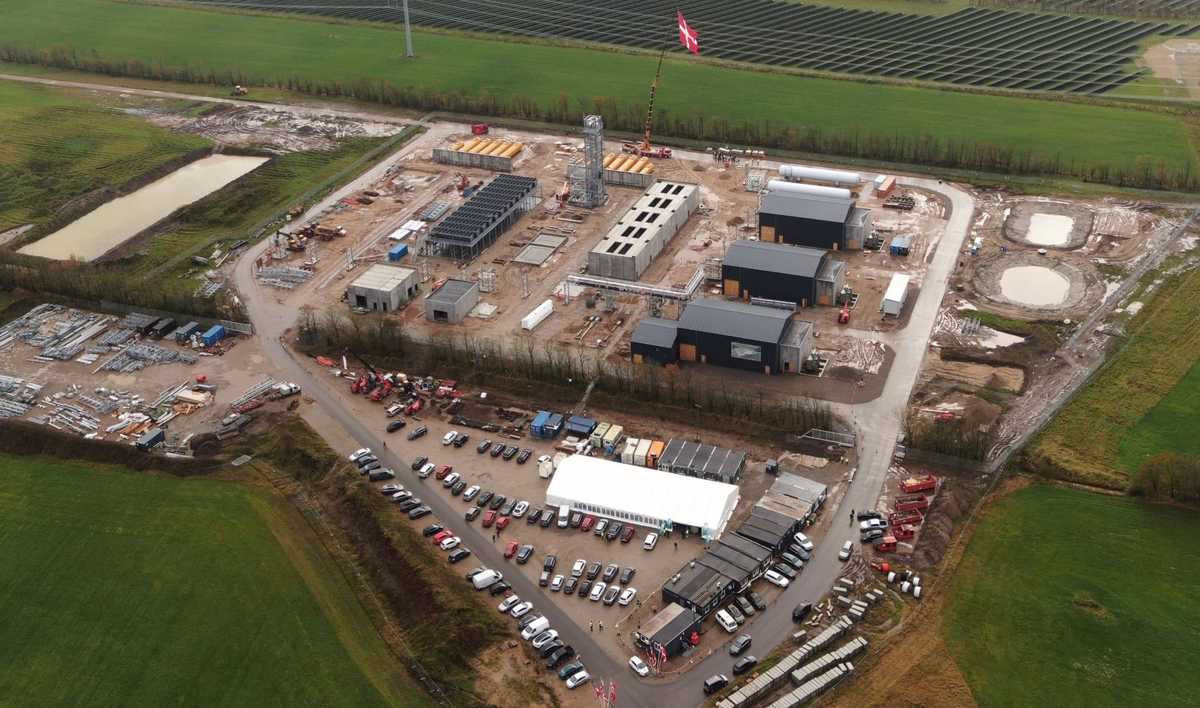Methanol Institute calls for inclusion of CCUS, mass-balance approach in IMO's LCA guidelines
The IMO should include an adjustment factor for CII calculation, carbon capture used during fuel production and mass-balance accounting in its LCA framework, Methanol Institute (MI) proposed.
 PHOTO: Construction underway at MI-member European Energy's e-methanol facility in Denmark. LinkedIn of Emil Vikjær-Andresen
PHOTO: Construction underway at MI-member European Energy's e-methanol facility in Denmark. LinkedIn of Emil Vikjær-Andresen
“Methanol Institute defends an expansive scope that ensures a comprehensive but fair, Well-to-Wake LCA methodology that includes an attributional approach with a consequential element about negative emission feedstocks,” the trade organisation said in a social media post.
The IMO adopted guidelines for lifecycle analysis (LCA) at the 80th session of its Marine Environment Protection Committee (MEPC 80) last year. A discussion on further developments of the LCA framework is expected at MECP 81 later this month.
“The LCA guidelines allow for a Well-to-Wake calculation, including Well-to-Tank and Tank-to-Wake emission factors, of total [greenhouse gas] GHG emissions related to the production and use of marine fuels,” the IMO explained.
MI proposed additional elements that the global shipping regulator can include in its updated LCA framework. These include:
- an adjustment factor for the Carbon Intensity Indicator (CII) formula to count methane and nitrous oxide emissions in CII calculations.
- default emission levels for different bunker fuels to “ensure consistency between existing regulation and avoid multiplication of efforts.”
- certification of “actual emissions” for all bunker fuels. This could be based on EU’s existing list of 14 voluntary schemes, MI recommended.
- definition of sustainable fuels using a 60% cap for GHG reduction compared to a fossil fuel baseline of 94gCO2/MJ.
- considering the use of carbon capture and utilisation (CCU) in the production of cleaner fuels like e-methanol.
MI also suggested that IMO should acknowledge the mass-balance approach during green fuel production to strengthen its LCA framework.
A mass balance method in fuel production is an accounting technique used to track the flow of sustainable feedstock in the supply chain, when blending renewable and non-renewable feedstock. The process involves quantifying feedstock and the final product. This will theoretically ensure that the product is not claimed to be greener than the quantity of sustainable feedstock used.
It also recommended inclusion of the overall GHG intensity of co-processed and blended fuels into the framework along with implementation of a book-and-claim system and use of onboard carbon capture technology to strengthen the IMO's LCA framework, MI said.
Book-and-claim is a type of supply chain model that allows shipowners to purchase emissions reductions from other shipowners that have already invested in low- and zero-emission fuels. By doing so, they will be able to balance out the emissions from their ships.
By Konica Bhatt
Please get in touch with comments or additional info to news@engine.online





